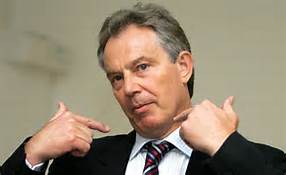Steve Freeman of the Republican Socialist Alliance, Left Unity and RISE gives his assessment of the state of the UK after the Chilcot Report.
THE UK AFTER CHILCOT

The UK is a conservative country where republicanism, the sovereign power of the people, exists in disguise. It is a love that dare not speak its name. The issue of sovereignty appears, for example, in the Labour Party in the contest between MPs and rank and file members over who can elect or remove the Labour leader or deselect local MPs. The coup against Corbyn is an attempt to overthrow the sovereignty of the members.
People power was at the heart of the Iraq war. In 2003 opposition to war became a struggle between the Crown-in-Parliament and millions mobilised on the streets. Labour’s unaccountable MPs, supported by the Tories, voted for war. The Crown won the battle for parliament and Crown forces went to war in Iraq with disastrous consequences for the Middle East.
The Chilcot report dug up millions of facts but did not get to the whole truth. This was first and foremost an American war. British Crown forces did not and would not have invaded Iraq on their own. They acted only as an appendage to US armed forces. Hence the cause of war is buried in files in Washington not London. Chilcot could not access to the full truth.
Oil is central to the story. As reported, Bush was planning the future of Iraq’s oil “within weeks” of taking office in 2001 and before the Nine-Eleven (2001) attack on New York’s Twin Towers. The US oil industry had a plan for selling off Iraq’s oil fields. This was set aside by US neo-conservatives who wanted much more production to destroy the OPEC oil cartel. (Newsnight Greg Palast 17 March 2005). It would be neo-liberal economics at the point of a bayonet.
The plan for Saddam, as one US soldier observed, “was to kick his ass and steal his gas”. No US President or British Prime Minister will explain that profit is imperialism’s real modus operandi. Instead skilful politicians, like Blair, spin their own fairy stories that wars are fought for the highest human values such as peace, freedom, democracy and liberation.
It was not for nothing that BP was known as Blair Petroleum. Yet Blair’s whole discourse about Iraq was in terms of saving the world from weapons of mass destruction and evil dictators. Not a drop of oil passed his lips.
Nine-Eleven changed the situation. The Bush plan for oil suddenly became feasible. The centre of gravity of US public opinion changed. Many wanted retribution. Bush seized the moment to go for a quick, easy victory. Saddam’s weakened army would not survive more than forty five minutes when facing US weapons of mass destruction.
British public opinion was not in the same mood. Blair would do a merry dance around the United Nations to convince the Cabinet, parliament and the British public he was a man of peace, working day and night to persuade the Americans not to go to war. It was a charade Bush was prepared to play. He needed UK political support to help convince Americans this war was legitimate. Bush was nevertheless clear; the US would go to war with or without the UK.
The UN weapons inspectors were a problem to steer around, as was the UK weapons expert, Dr David Kelly, who knew the truth about Iraq’s weapons. He then committed suicide in controversial circumstances.
Whether Blair lied is a technical point. He was involved in a conspiracy to manipulate and manoeuvre the country into a war for regime change. Since that was illegal, he told parliament the country was threatened by weapons of mass destruction. The capitalist press played their role in whipping up war fever.
There are two ways of overthrowing dictators like Saddam – imperialist war and popular democratic revolutions. Bush and Blair waged an imperialist oil war and put the country into the hands of sectarian bourgeois politicians. This was no war of liberation. If the Iraqi people felt liberated when Saddam’s statute was toppled, they soon saw it was a false dawn. Their hopes were dashed. The country descended into barbarism.
The British Crown is the name for the political class who govern the United Kingdom. They include senior civil servants, important Ministers such as the Chancellor, the Foreign Secretary, the heads of the intelligence services and the armed forces. The Queen is chair of the board and the Prime Minister its chief executive. Blair did not and could not go to war without the support of the Crown. The Prime Minister is a powerful position but he or she can’t act without the political class.
The Iraq war was a disaster for the Iraqi people and a tragedy for those soldiers who were injured or lost their lives. The lessons are not about the duplicity of Tony Blair and his conspiracy with George Bush. Blair should be held to account. But to focus solely on one man is to miss the real lesson. The dangerous and damaging concentration and centralisation of power in the British political and constitutional system continues to this day.
Under the UK constitution, the political class, under the cloak of secrecy, is able to do largely as it will. Many crimes and cover ups, not least the Iraq war, have been carried out without all those responsible being held to account by the people. In 2003 mass mobilisation against the Iraq war and Peoples Assemblies was the embryo of popular sovereignty. Today Blair is gone and politics is shaken up like never before. Yet the sovereign power of the people, the republic, seems as elusive as ever.
________
also see:- http://republicancommunist.org/blog/2016/05/05/hillsborough-the-crown-in-the-dock/
